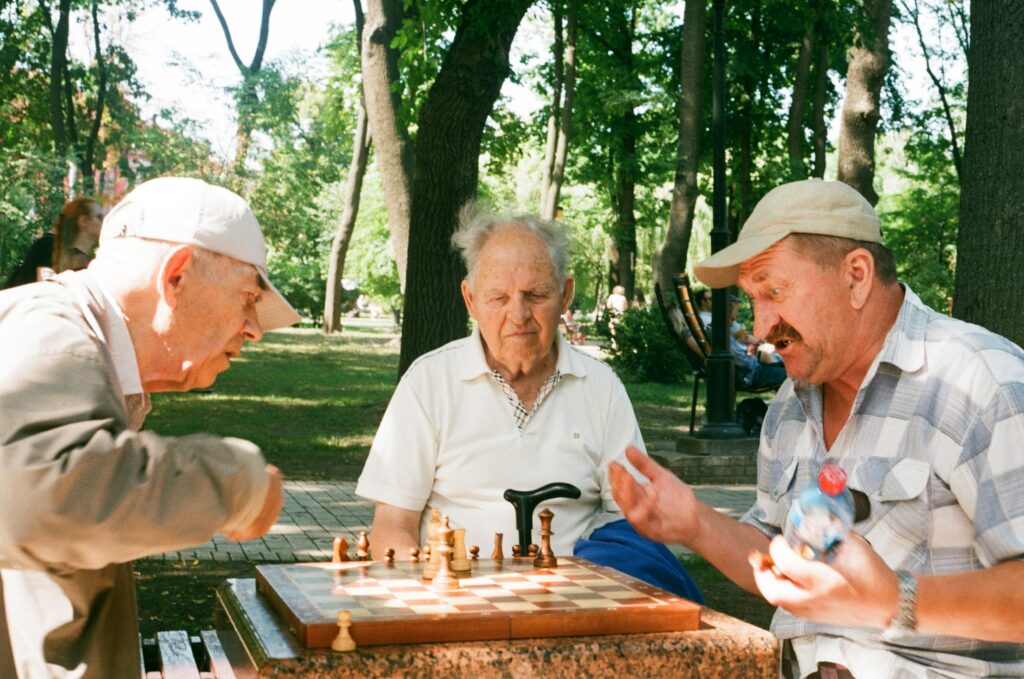

You must have seen in real life or in movies/TV series that as people get older, their mental faculties begin to diminish. There is a general perception that as people go beyond their retirement age and move into their 70s and 80s, they experience a “cognitive decline”.
Let your worries be put to rest immediately. This is not a hard and fast rule. Yes, the so-called cognitive decline has been observed among people who have aged but in most of the cases, that’s due to lifestyle choices. Otherwise, people who actively use their brains, keep using them until their wee hours.
Albert Einstein developed the general theory of relativity when he was 76 years old. If you’re a great fan of KFC chicken, Colonel Sanders founded his business when he was 62. The famous author Khushwant Singh wrote his last book when he was 98. Most of the people achieve their political pinnacle and become prime ministers and presidents when they are well into their 60s.
How does that happen though? How do people remain mentally active and smart well into the 90s? Is there some secret? Is it hereditary? Is it simple luck? Is it lifestyle?
It’s a mixture of all. You cannot control luck. You cannot choose to get your genes. But you can certainly make changes to your lifestyle so that you enjoy a working brain for as long as you breathe. Here are a few things you can do:
Remain curious
When you are curious, you keep your brain active and engaged. Curiosity encourages you to learn new things. This improves your memory and cognitive abilities. It’s like giving your brain a regular workout.
Curiosity gives you an opportunity to engage in cognitively stimulating activities. Learning a new skill helps you generate new neurons, reduce the risk of cognitive decline, and improve cognitive functioning. It also improves your overall well-being.
Many people, after retirement, lose their curiosity because they think all their learning is behind them, and now, they simply need to just while away their time.
Help your grandchildren with homework
What could be more stimulating than helping your grandchildren get better at their studies? Help your grandchildren study. If your grandchildren are not around, volunteer to help children in the neighbourhood.
It’s not necessary that you need to teach maths and science. You could be good in accounting. You can teach English or Hindi or any regional language you’re comfortable in and they happen to be learning at school. You can help them with social sciences, history, geography, or any other subject you feel comfortable with.
Brush up your concepts. Don’t think that you have forgotten everything. Remember you have spent a big part of your life doing a job or business, which means, you have been analysing and solving problems for years, even if you haven’t actively realized that. This means your brain is already used to understanding and grasping concepts. What I mean to say is, even if a subject is alien to you, with some self-study, you will be able to learn enough to teach a school going kids.
Be active on social media
Social media platforms like Twitter often get a bad rap for multiple reasons. Too much toxicity. Too much trolling. Senseless consumption of content.
Yes, more social media platforms have these problems, but they also provide you a very good opportunity to consume information, have an opinion, and express yourself.
Do you have a strong opinion on a regional political party? Do you want to speak in favor of your favourite movie stars, sports stars or other media personalities? Do you have ideological opinions that you would like to share and defend on public platforms? Social media platforms can be a great outlet for you. Follow some stimulating people. Read your timeline. React. Just make sure that you don’t get trapped into a trolling cycle. Educate yourself and then participate in debates and discussions with sincerity and enthusiasm.
Spend time reading
There is plenty to read these days. Reading is quite accessible. In the olden days, we used to get magazines and books from market and newspaper delivered in the morning at home. All these publishing media have been digitised now.
Whatever you want to read, you can read it on your phone. Install Kindle Reader app or Google Play Books app on your mobile phone or tablet and you can read as many books as you want. Every possible book is available. All newspapers and magazines are just a URL away.
Even if you’re not comfortable reading digitally, getting your favourite books was never easier. Just go to Amazon.in or Flipkart and get the book you want.
Reading improves your memory. It enhances your vocabulary which in turn stimulates new neurons in the brain. When you analyse storylines and characters, it encourages critical thinking. Book reading is a great stress buster. Complex plots and mysteries in books challenge your problem-solving skills. Reading stimulates imagination which triggers creativity and mental agility. Also, when you read about different characters and situations it enhances your empathy and understanding of others.
Remain physically active
This is obvious. A healthy body results in a healthy mind. Physical activity gets your heart pumping and this in turn increases blood flow to your brain. This delivers more oxygen and nutrients to your brain cells, promoting a healthier brain. Exercising also triggers the release of neurotransmitters like dopamine and serotonin. These chemicals regulate mood and reduce stress. Physical activity has been linked to maintaining brain volume, which tends to reduce as we age. Also Read Strategies for a joyful post-retirement life
Conclusion
Remaining mentally sharp, unless there is a medical condition, is a matter of choice. Your brain is a muscle. The more you train, the better it becomes. Studies have shown that even in old age, you can develop and train new neurotransmitters. You can train the parts of your brain that control cognitive functions. You can plan your day-to-day activities in such a manner that you need to use your brain on a regular basis, such as solving puzzles, reading slightly difficult topics, learning a new language and helping children study.

